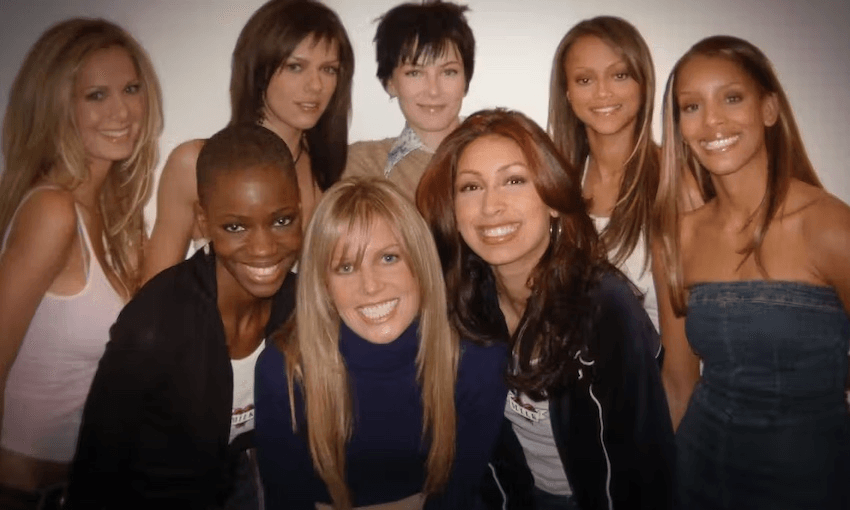Neon’s gender-flipped version of High Fidelity features Zoë Kravitz in the role John Cusack made famous 20 years ago. And it works far better than you might expect, writes Catherine McGregor.
By now we’ve all accepted the fact that every last artistic touchstone we hold dear will one day end up being reused, reinterpreted or otherwise stripped for parts. The latest beloved cultural IP to get the treatment is High Fidelity, the 1995 Nick Hornby novel about music, masculinity and arrested development that director Stephen Frears went on to adapt into a film starring John Cusack. As a fan of both, it was hard not to approach Hulu’s new serialised retelling with some trepidation. What new insights could possibly be wrung from this tale of a music snob learning that a successful relationship involves more than simply making them a really, really excellent mixtape?
Quite a lot, it turns out. While it travels much of the same thematic landscape as the book and film, High Fidelity, the TV show, is a looser, more expansive affair. To some extent that’s simply down to length – at 10 half hour episodes, season one is already more than twice the length of the movie – but mostly it flows from the key decision by co-creators Veronica West and Sarah Kucserka to reimagine High Fidelity’s heartsick record store owner as a woman. As with Hornby’s original, this Rob (Zoë Kravitz, whose mother Lisa Bonet had a starring role in the 2000 film) is moody, judgemental and more than a little self-absorbed. The difference here is in the particular brand of selfishness from which she suffers. Without the original’s focus on the debilitating effects of male entitlement and the “nice guy” trap, Rob is free to embody a less gender-specific type of loser in love.
West and Kucserka have jokingly said their show is operating within a High Fidelity “extended universe”, but when a show is this steeped in music it’s hard to resist the more obvious metaphor – the cover version. The source material is never far from the show’s surface, especially in the first episodes when the narrative hews most closely to Hornby’s original story. Fans of the earlier versions will either be charmed by or slightly irritated with all the references and callbacks dotted throughout. Some are instantly familiar, like Rob selling five copies of an album simply by playing it in the store (the Beta Band of the film becomes the infinitely funkier R&B musician Swamp Dogg in the show). Others are more subtle nods, including Rob’s fondness for leather jackets and Dickies t-shirts, and a very Springsteen-like celebrity cameo in episode three.
But as with any truly successful cover, it’s what the show adds to the original that makes it great. To say the earlier versions lacked diversity isn’t the criticism it might appear – High Fidelity’s straight white maleness was kind of the entire point – but the show’s exuberant heterogeneity is striking nonetheless. New Rob isn’t just a woman, she’s also biracial and bisexual, and her world (in this case, the Crown Heights neighbourhood of Brooklyn) is populated by a mix of races, genders and sexualities. Her co-workers are Simon (David H. Holmes), a gay music nerd whom Rob dated before he came out, and Cherise, an exuberant wannabe musician (Da’Vine Joy Randolph, in a scene-stealing interpretation of Jack Black’s movie role). All three have a love for music that could hardly be more 2020 in its genre-bending eclecticism. Simon is equally at ease discussing punk icons Minor Threat and queer disco pioneer Sylvester; Cherise name checks Celine Dion and Tina Turner in one breath, Kurt Cobain, David Byrne and My Bloody Valentine’s Belinda Butcher the next.
That the co-workers Rob can barely tolerate in the movie are now loving friends exemplifies the particularly female warmth that runs through the new High Fidelity. The show is set in a perpetual golden midsummer, all the better to illuminate the immense attractiveness not only of Kravitz, but the entire cast. With the series’ open-ended format – season two hasn’t yet been announced, but it looks likely, Covid willing – there’s plenty of time for Rob to not only reconnect with her “top five” heartbreaks, but to fully explore three separate romantic pathways, all promising in their own ways.
High Fidelity 2020 may have sanded off some of its rough edges, but what it loses in grit it makes up for in heart and depth. It’s still just as funny, and Kravitz delivers a winning performance that will come as a revelation if you’re familiar only with her downbeat role in Big Little Lies. As anyone who’s heard Duran Duran’s ‘911 is a Joke’ can tell you, there are few things more painful than a bad cover of a beloved classic. That’s not a problem here. High Fidelity might not be the greatest ever movie turned TV show – that title still belongs to Fargo – but it definitely has a place in the top five



